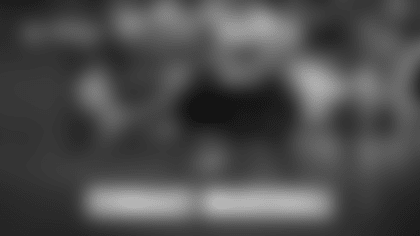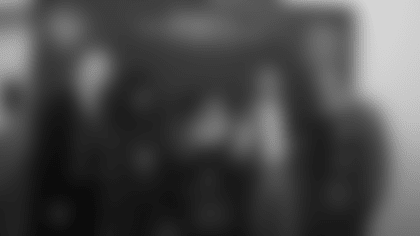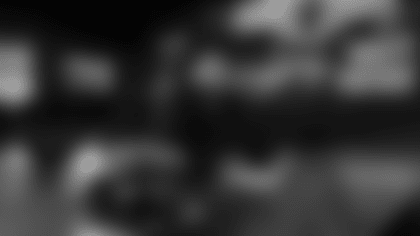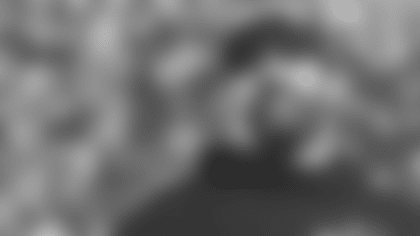Chairman and CEO Jeffrey Lurie spoke to the media Sunday in what was by far his most unique State of the Eagles address since he assumed control of the team in 1994.
For starters, it took place in August, which is five months after he usually holds his annual press conference during the NFL Annual Meeting. That can mainly be attributed to COVID-19 sending the entire world into a nearly yearlong whirlwind.
However, the timing was merely part of what made this particular address different from the others.
On Sunday, Lurie spoke his mind.
Not about the football team he operates, but about the world in which we live. If there is one positive amongst a mountain of negatives about the global pandemic, it has washed all of our society's ills ashore for everyone to see in plain sight.
Lurie came prepared to talk about them Sunday and did so in a nearly 20-minute monologue before taking questions from reporters for nearly another half-hour. For him, it was his time, his platform to express himself and speak directly from his heart.
Lurie went into great detail about the two pandemics (yes, two) plaguing our country at the moment: COVID-19, which is a once-in-a-lifetime happening that no one was truly prepared for, and systemic racism, which has permeated this nation since its inception. He tackled the latter issue first.
Part of solving any problem is acknowledging it exists, and Lurie believes that has yet to truly happen in the United States. Casting systemic racism aside as a relic of a bygone era or ignoring its existence all together only worsens the situation. Lurie said Sunday that it's time for those mindsets to change.
"Systemic racism, it's our legacy," he said. "When you write back on the 400 years of the United States, there's a lot of wonderful, wonderful things that have taken place in our country and we can all be proud of it. We can love our country, but to love our country is to own our country, and that's where I really believe strongly that we have to own the good and own the bad."
"We won't be able to change the bad until we realize we're responsible for it," he added.
Owning it is merely step one in a long and trying process to bring about real change. Another is expressing empathy. Lurie has lived a mostly privileged life because of his family's wealth. But he still makes it personal when he sees victims of racial inequality.
Putting a personal face on the victims is paramount to opening one's heart and truly feeling their pain. If Derek Chauvin opened his heart up to the pain of the oppressed, he would not have placed his knee on George Floyd's neck for 8 minutes and 46 seconds, according to Lurie.
Feeling someone else's pain doesn't allow someone like Ahmaud Arbery or Breonna Taylor to become merely another headline or just another hashtag, in Lurie's eyes. It allows society to want to do something about a senseless act.
"I think in our country – and it's only natural in societies probably around the world – that we suffer a lot of events, a lot of pain, but we then move on, and we move on too quickly, so people become statistics and that's not really what this is all about," he said.
Lurie brought statistics to the table when expressing his feelings about the COVID-19 pandemic, which has claimed more than 800,000 lives worldwide. Nearly a quarter of those deaths (over 180,000) come from the United States alone. To that, Lurie merely asked, "Why?"
Why has the wealthiest country in the world succumbed to a virus to this extent, where other countries with fewer resources have not? The first step in answering that question is to, once again, own it.
"We have to own the questions of leadership, we have to own the questions of policy, and there's a lot to be discussed here on that in the future," Lurie said.
"It's heartbreaking," he added. "These are needless deaths. Needless. We should be similar to most countries on the planet, and yet, we are an embarrassment, and a tragic embarrassment."
Now that Lurie has acknowledged the issues and opened his heart and mind up to them, what is the next step?
Taking action.
Lurie has been an active member of the Eagles Social Justice Committee since its inception and has allowed the players, most of whom are Black, to take the lead on how the Eagles can help spark change in the City of Philadelphia and beyond. He has offered up Lincoln Financial Field to be a polling venue if needed for the upcoming presidential election.
For COVID-19, the NFL has taken a multitude of measures in making sure that the 2020 NFL season is played safely. Yes, not having fans in the stadium for the time being may be a part of that, but the safety of others is Lurie's top priority.
The media may not hear from Lurie again until next March, but the push for real societal change will continue in the meantime.
"As a country, we're experiencing multiple tragedies all at the same time, lots of stress, but this is a chance to appeal to our higher selves, to step back and be objective of what's really going on here, own it, and create action as best we can in every possible direction," Lurie said.
Other notes from Lurie's State of the Eagles address
On his level of optimism regarding the 2020 season: "I am optimistic that we'll be able to play our games. So far, things are going awfully well in terms of the protocols. They're very, very detailed, and rightly so. I'm optimistic, but I'm also really cognizant that the virus will control that. We will not control that."
On a potential scenario where Eagles players would want to strike like the NBA did last week to draw attention to social injustice: "I'm not concerned because I'm supportive of everything that's involved in terms of trying to create attention and social change, and I've always been that way. If we have to sacrifice, we have to sacrifice. But my most important opportunity to discuss that would be what can we do that's really effective, and it's not simply a statement but something that's going to have action involved with it."
On not having fans at Lincoln Financial Field to open the 2020 season: "We are hopeful there's going to be real ways of having significant fans in our stadium pretty soon. Maybe not for September but after that, and we're looking at innovative ways of testing, with rapid testing, with point-of-care testing, with home testing. There's a lot of ways to kind of approach this, and we've been incredibly proactive working with companies around the planet to see what they're up to and whether we can implement testing procedures that would allow the public – because the first thing is we love our fans. We know we've got a big home-field advantage. We even have an away field advantage in places, as you know, like Washington, Los Angeles, Miami."














